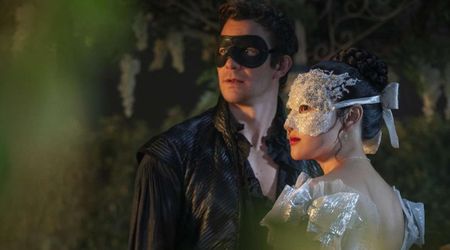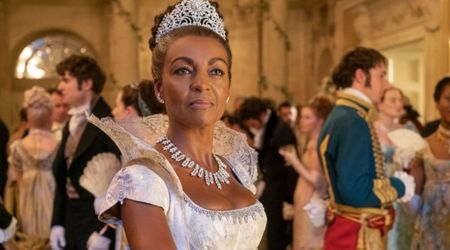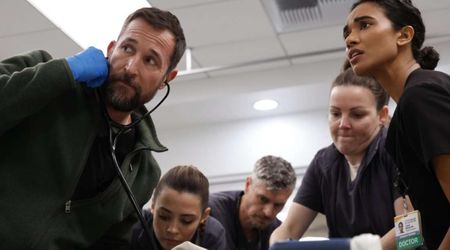Killing Eve subtly breaks stereotypes on what a sociopath assassin really wants

If there's one thing the world is certain of, it's how meticulous trained assassins, sociopaths and most serial killers are. They are known for their absolute precision - executing each task to the last, minute detail. But is the task of killing someone - or the pursuit of killing - the only thing they want? Are they just junkies hooked to the rush they derive from killing, or is that just a step towards a bigger goal in life?
BBC America's Killing Eve seems to weigh higher on the latter. Creator Phoebe Waller-Bridge dabbles around the story of a trained assassin but is so much more than just her apparent thirst for murder. Killing Eve's villain, Villanelle (Jodie Comer), is not your regular assassin. In fact, what she really wants is, "Normal stuff. Nice life. Cool flat. Fun job. Someone to watch movies with."
Over the years, sociopaths have been portrayed in ways completely beyond the grasp of many. They are people not to be messed with; people one can't figure out, yet cannot help being intrigued by. But Villanelle is quite different in her ethics and strategy to complete a murder. When asked if she is there to kill her victim, she nonchalantly admits instead of swooping in from behind.
In other words, Villanelle is quite clear about what she wants to do. There's no latent air of ulterior motive in her; even when it comes to the one woman she cannot manage to wrap her head around. The Eve from the show's title, played by Sandra Oh is an M.I.6 agent who is supposed to track Villanelle down, but on the said journey she also embarks upon a sort of self-awakening. And while she herself isn't able to verbalize what she wants, Villanelle seems to have it all under control.
Bits of that could be attributed to the alias the assassin has chosen for herself. The Oxford dictionary defines 'villanelle' as "a pastoral or lyrical poem of nineteen lines, with only two rhymes throughout, and some lines repeated." And when it comes to the character herself, the two constant rhymes she has abided by thus far in the series happen to be her first love interest - Anna (Susan Lynch) - who was her former teacher, and of course, Eve.
As for the repeated lines, they are portrayed in the form of the recurring patterns of pleasure that Villanelle herself resorts to throughout the plot of the first season of Killing Eve. In that, the primary elements are her attitude towards kids, her lush and luxurious style of living, and the way she commits murders out of the sheer pleasure of owning what she believes is rightfully hers, and not some manic bloodthirst driving her.
At the same time, much of her inherent need for love and pleasure can be explained by her childhood, which gets revealed in bits and pieces throughout the span of the first season.
Villanelle's evolution into an assassin was done in her days as a teenager at a Russian prison, where she was recruited by the Twelve - the mysterious organization she works for. But when the Twelve assign her the task of killing her handler and the only father figure she has ever had, Konstantin, she resorts to kidnapping his daughter, Irina, and in the finale, we see her demanding him to admit that he loves her more than his own daughter.
Her inherent craving for love and affection is further revealed by how even before she holds Konstantin at gunpoint, she has murdered the person who had assigned her the task. In other words, Villanelle endangered her own employment for this father figure but wants verbal reassurance of the love too.
Yet one of the biggest revelations Killing Eve makes regarding breaking notions of sociopath assassins is how obsession is a two-way street for them. Media portrayals of such characters are known to be obsessed with killing and their victims, but in Killing Eve, it also works the other way round. It is almost as if anybody who has been in Villanelle's aura is enchanted by her.
Take Eve for example; she was granted the simple task of tracking Villanelle down, yet in the end, her chase became a quest to own the untamable force that is the villain. It is showcased ever so beautifully, with commendable nuances throughout the show.
Be it her blatant outburst upon finding that M.I.6 Chief Carolyn (Fiona Shaw) had interviewed Villanelle in the Russian prison without informing her, or when she finally arrives at Villanelle's house and is engulfed with contrasting emotions of finally being in her most intimate spaces: Eve became obsessed with the idea of being wrapped around with Villanelle.
Even in the finale, while being held at gunpoint, Konstantin cannot refrain from the spell of Villanelle that he seems to be under. “I love you more than this house. I love you more than my family,” he succumbs to her demands. “You’re the best thing that ever happened to me, to the organization, to the future.”
But the pattern breaks only once - much like the abrupt end of a poem on its nineteenth line - when it comes to Irina, aka Konstantin's daughter whom Villanelle had kidnapped. The kid has an absolute disregard for what Villanelle wants, and surprisingly, around her she isn't this calm, poised aura nestled in the plush luxuries of her enchanting cocoon of a life.
So naturally, when the plot finally recoils towards the end of the tale, and Eve and Villanelle are finally seen together in bed, it is relatively easy for the assassin to fall back into the pattern of wanting an older woman. It probably stems from her losing her mother as a child and looking for a relationship of mutual care and devotion, but even then her crisp relaying of what she wants is not compromised with.
Laying in bed together, exhausted, and much along the lines of the Season finale's title "God, I'm tired!", Eve makes her confession, saying: "I think about you all the time. I think about what you’re wearing and what you’re doing and who you’re doing it with. I think about what friends you have, what you eat before you work, what shampoo you use, what happened in your family. I think about your eyes and your mouth and what you feel when you kill someone. I think about what you had for breakfast. I just want to know everything."
And in that moment, Eve shape-shifts into everything that Villanelle's sociopath mind wants. With regards to emotional intensity, Eve's confession ranges from devoted caregiver to borderline stalker, and strangely enough, that is appealing to the messed up assassin.
Laying in the comforts of her lush, Parisian apartment, when Eve finally stabs Villanelle with a knife, the latter - gravely injured - managed to admit "I really liked you!" before she escapes while Eve is busy trying to find a towel to stuff her bleeding. But at the end of the day, they must resume their intrinsic jobs - Eve to hunt Villanelle, and Villanelle to be pursued.
Doesn't quite sound like a trained assassin, but then again - the show doesn't abide by stereotypes. It's about what Villanelle truly wants, and maybe - at the end of the day - she just wants Eve to find her.










